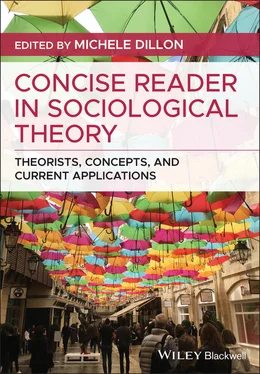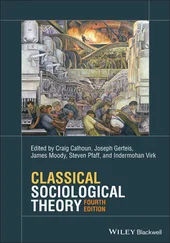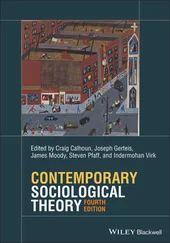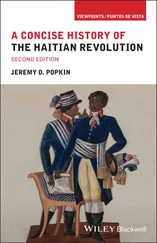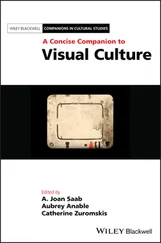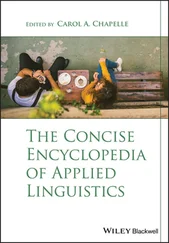1 COVER
2 TITLE PAGE
3 COPYRIGHT PAGE
4 INTRODUCTION REFERENCES
5 PART I: CLASSICAL THEORISTS CHAPTER ONE: KARL MARX REFERENCES 1A Karl Marx from Wage Labour and Capital II 1B Karl Marx and Frederick Engels from Economic and Philosophical Manuscripts of 1844 1C Karl Marx and Friedrich Engels from The German Ideology CHAPTER TWO: EMILE DURKHEIM REFERENCES 2A Emile Durkheim from The Rules of Sociological Method II 2B Emile Durkheim from Suicide: A Study in Sociology CHAPTER THREE: MAX WEBER 3A Max Weber from The Protestant Ethic and the Spirit of Capitalism 3B Max Weber from Economy and Society 3C Max Weber from Essays in Sociology
6 PART II: STRUCTURAL FUNCTIONALISM, CONFLICT, AND EXCHANGE THEORIES CHAPTER FOUR: STRUCTURAL FUNCTIONALISM REFERENCES 4A Robert K. Merton from On Social Structure and Science CHAPTER FIVE: CONFLICT AND DEPENDENCY THEORIES REFERENCES 5A Ralf Dahrendorf from Class and Class Conflict in Industrial Society REFERENCES 5B Fernando Henrique Cardoso and Enzo Faletto from Dependency and Development in Latin America CHAPTER SIX: SOCIAL EXCHANGE REFERENCES 6A Peter M. Blau from Exchange and Power in Social Life 6B James S. Coleman from Social Capital in the Creation of Human Capital REFERENCES 6C Paula England from Sometimes the Social Becomes Personal: Gender, Class, and Sexualities REFERENCES
7 PART III: SYMBOLIC INTERACTION, PHENOMENOLOGY, AND ETHNOMETHODOLOGY CHAPTER SEVEN: SYMBOLIC INTERACTION REFERENCES 7A George H. Mead from Mind, Self & Society 7B Erving Goffman from The Presentation of Self in Everyday Life CHAPTER EIGHT: PHENOMENOLOGY REFERENCES 8A Peter L. Berger and Thomas Luckmann from The Social Construction of Reality: A Treatise in the Sociology of Knowledge The Reality of Everyday Life Origins of Institutionalization CHAPTER NINE: ETHNOMETHODOLOGY 9A Harold Garfinkel from Studies in Ethnomethodology Practical Sociological Reasoning: Doing Accounts in “Common Sense Situations of Choice” 9B Sarah Fenstermaker and Candace West from Doing Gender, Doing Difference: Inequality, Power, and Institutional Change REFERENCES
8 PART IV: MAJOR POSTWAR EUROPEAN INFLUENCES ON SOCIOLOGICAL THEORY CHAPTER TEN: CRITICAL THEORY REFERENCES 10A Max Horkheimer and Theodor W. Adorno from Dialectic of Enlightenment 10B Jürgen Habermas from The Theory of Communicative Action: Reason and the Rationalization of Society CHAPTER ELEVEN: PIERRE BOURDIEU REFERENCE 11A Pierre Bourdieu from The Forms of Capital REFERENCE 11B Pierre Bourdieu from Distinction: A Social Critique of the Judgement of Taste CHAPTER TWELVE: MICHEL FOUCAULT AND QUEER THEORY REFERENCES 12A Michel Foucault from The History of Sexuality 12B Steven Seidman from Queer Theory/Sociology REFERENCES
9 PART V: STANDPOINT THEORIES AMID GLOBALIZATION CHAPTER THIRTEEN: FEMINIST THEORIES REFERENCES 13A Charlotte Perkins Gilman from The Man‐Made World or Our Androcentric Culture 13B Arlie Hochschild from Emotion Work, Feeling Rules, and Social Structure REFERENCES 13C Dorothy E. Smith from The Conceptual Practices of Power: A Feminist Sociology of Knowledge 13D Patricia Hill Collins from Black Feminist Thought: Knowledge, Consciousness, and the Politics of Empowerment REFERENCES 13E Patricia Hill Collins from Intersectionality’s Definitional Dilemmas REFERENCES 13F R.W. Connell and James W. Messerschmidt from Hegemonic Masculinity: Rethinking the Concept REFERENCES CHAPTER FOURTEEN: POSTCOLONIAL THEORIES REFERENCES 14A W. E. Burghardt Du Bois from The Souls of Black Folk 14B Edward W. Said from Orientalism 14C Frantz Fanon from Black Skin, White Masks 14D Stuart Hall from Cultural Identity and Diaspora 14E Raewyn Connell, Fran Collyer, João Maia, and Robert Morrell from Toward a Global Sociology of Knowledge: Post‐Colonial Realities and Intellectual Practices REFERENCES 14F Alondra Nelson from The Social Life of DNA: Racial Reconciliation and Institutional Morality after the Genome REFERENCES CHAPTER FIFTEEN: GLOBALIZATION AND THE REASSESSMENT OF MODERNITY REFERENCES 15A Zygmunt Bauman from Liquid Modernity 15B Anthony Giddens from Modernity and Self‐Identity: Self and Society in the Late Modern Age 15C Ulrich Beck from Risk Society: Towards a New Modernity 15D Ulrich Beck and Edgar Grande from Varieties of Second Modernity: The Cosmopolitan Turn in Social and Political Theory and Research 15E Jürgen Habermas from Notes on Post‐Secular Society
10 Index
11 End User License Agreement
1 COVER PAGE
2 TITLE PAGE
3 COPYRIGHT PAGE
4 TABLE OF CONTENTS
5 BEGIN READING
6 INDEX
7 WILEY END USER LICENSE AGREEMENT
1 iii
2 iv
3 1
4 2
5 3
6 4
7 5
8 6
9 7
10 9
11 10
12 11
13 12
14 13
15 14
16 15
17 16
18 17
19 18
20 19
21 20
22 21
23 22
24 23
25 24
26 25
27 26
28 27
29 28
30 29
31 30
32 31
33 32
34 33
35 34
36 35
37 36
38 37
39 38
40 39
41 40
42 41
43 42
44 43
45 44
46 45
47 46
48 47
49 48
50 49
51 50
52 51
53 52
54 53
55 54
56 55
57 56
58 57
59 58
60 59
61 60
62 61
63 62
64 63
65 64
66 65
67 66
68 67
69 68
70 69
71 70
72 71
73 72
74 73
75 74
76 75
77 76
78 77
79 78
80 79
81 80
82 81
83 82
84 83
85 84
86 85
87 86
88 87
89 89
90 91
91 92
92 93
93 94
94 95
95 96
96 97
97 98
98 99
99 100
100 101
101 102
102 103
103 104
104 105
105 106
106 107
107 108
108 109
109 110
110 111
111 112
112 113
113 114
114 115
115 116
116 117
117 118
118 119
119 120
120 121
121 122
122 123
123 124
124 125
125 126
126 127
127 129
128 131
129 132
130 133
131 134
132 135
133 136
134 137
135 138
136 139
137 140
138 141
139 142
140 143
141 144
142 145
143 146
144 147
145 148
146 149
147 150
148 151
149 152
150 153
151 154
152 155
153 156
154 157
155 158
156 159
157 160
158 161
159 162
160 163
161 164
162 165
163 166
164 167
165 168
166 169
167 170
168 171
169 173
170 175
171 176
172 177
173 178
174 179
175 180
176 181
177 182
178 183
179 184
180 185
181 186
182 187
183 188
184 189
185 190
186 191
187 192
188 193
189 194
190 195
191 196
192 197
193 198
194 199
195 200
196 201
197 202
198 203
199 204
200 205
201 206
202 207
203 208
204 209
205 210
206 211
207 212
208 213
209 214
210 215
211 216
212 217
213 218
214 219
215 220
216 221
217 222
218 223
219 225
Читать дальше
